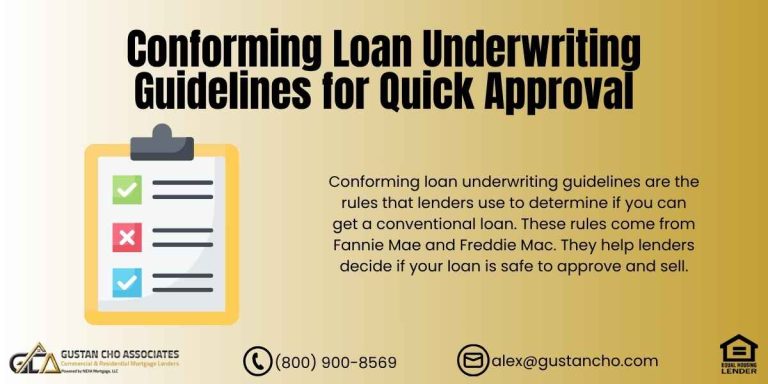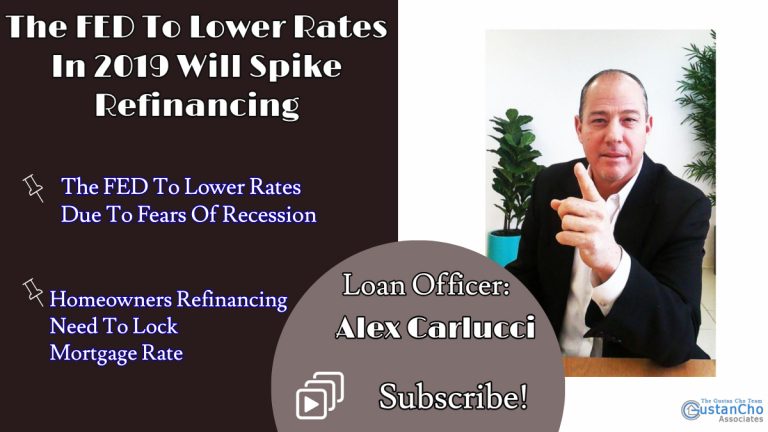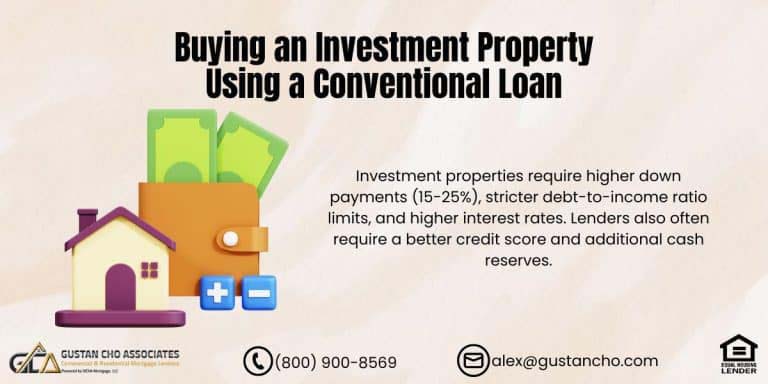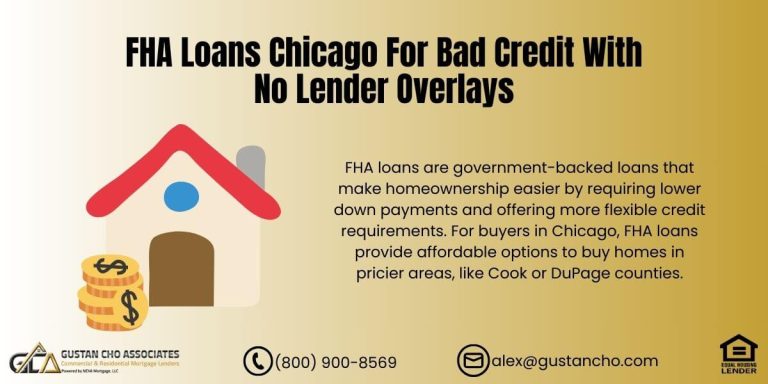One of the most frequently asked questions is how much income do I need to buy a house in 2025. In this article, we will answer the question commonly asked, How much income do I need to buy a house in 2025? The housing market is booming. Despite the coronavirus pandemic, home prices have skyrocketed in 2020 and 2021.
Demand for homes remained strong in 2020 when there were more buyers than the inventory of homes. The 2022 housing market is expected to be stronger than in 2021.
Despite the Democrats’ control of both the House of Representatives and the Senate and inflation soaring, mortgage rates are expected to remain low in 2022 and well into 2023. However, home prices are at an all time historic high, inflation is out of control, and mortgage rates are at historic highs. If you’re planning to buy a house in 2025, knowing how much money you need to make is key. Buying a home is huge, and understanding the numbers can make all the difference. Let’s break this down so you have a clear picture. We’ll cover the basic dos and don’ts, some real examples, and quick tips to help you get the financing you want. Doesn’t matter if this is your first home or you’re moving up to something bigger—once you see the numbers, you’ll feel a wall of mystery lift.
The 50% DTI Rule: Your Guiding Light in Home Buying
One Easy Way to See if a House is in Your Future is The 28/36 Rule. Put:
In theory, debt-to-income ratio on conventional loans is maxed out at 45% for borrowers with credit scores under 680. Borrowers with credit scores over 680, the automated underwriting system normally caps debt-to-income ratio up to 50% DTI. There is no front end debt-to-income income ratio cap on conventional loans.
- Up to 50% of your gross monthly income is the most you should spend on the monthly payment of the home itself.
- This includes any loan, property taxes, homeowners insurance, and HOA fees.
- 50% is the maximum you can apply to all monthly debt, so this is your home payment plus credit cards, car loans, and student loans.
- When your debt stacks up less than these numbers, you’re typically in a sweet spot for lenders.
However, in theory, lenders with overlays on conventional loans, they want to see a 28% front-end and 36% back-end debt-to-income ratio.
If Your Paycheck is $6,000 a Month Before Taxes, Then:
- 28% lets you spend $1,680 on your mortgage monthly.
- 36% lets you spend $2,160 on all monthly debts combined.
- These limits help lenders keep risk in check and keep you from getting a mortgage you can’t afford.
What Lowers the Income You Need?
It’s more than your monthly pay stub. Here’s what can help you qualify with a lower income:
- Type of loan (FHA, VA, USDA, or Traditional).
- Interest rate (a higher rate means a bigger bill).
- Amount of down payment.
- Property taxes and homeowners’ insurance.
- Current debt load.
- Credit score.
- If you have a 740 credit score, no credit card debt, and you put 20% down, you’ll need a smaller income than if you’ve got car loans, student debt, and a lower credit score.
How Lenders Size Your Loan Amount
- Lenders check your debt-to-income (DTI) ratio.
- They divide your monthly debt bill by your monthly income before taxes, then turn that into a percentage.
Here’s the DTI You Can Expect With Most Loan Types:
- FHA loans is the most generous loan program with a maximum 46.9% front-end and 56.9% back-end DTI.
- Traditional loans usually require you to stay between 45% and 50% DTI.
- VA loans look at leftover income after costs instead of a strict DTI maximum.
- USDA home loans limit total monthly debt (DTI ratio) to 29% front-end and 41% back-end debt-to-income ratio.
- However, they allow a higher ratio if your credit score is strong enough.
- So, let’s say you take home $5,000 a month and pay $500 in other debts.
- Your total DTI is only 10%, leaving plenty of wiggle room for a bigger mortgage.
How Much House Can I Afford in 2025 Based on My Income?
Here’s a rough ballpark for what you might afford in 2025, assuming you keep debt low and rates stay in a normal range with typical taxes and insurance:
- Income of $50,000/year: Expect to buy a home in the $170,000 to $220,000 range.
- Income of $75,000/year: Expect to buy a home in the $250,000 to $325,000 range.
- Income of $100,000/year: Expect to buy a home in the $350,000 to $450,000 range.
- Remember that your exact budget will change with interest rates, how much you can put down, your credit score, and the housing market in your area.
Can You Buy a House on a Low Income in 2025?
- Absolutely.
- Low and moderate-income individuals can still get mortgages.
- Loans backed by the government—like FHA, VA, and USDA—tend to allow borrowers to avoid strict income and credit rules.
- With an FHA loan, you can buy with a credit score of only 580 and a down payment of just 3.5%.
- A USDA loan may allow you to buy a home with no down payment if you choose a qualifying rural area and stay under the income cap.
- Down payment assistance programs make it easier to buy a home without a big pile of cash saved up.
How to Get More House for the Money You Make
Even if your paycheck is smaller than you want, you can still buy a home that fits your needs. Here are a few smart steps you can take:
- Pay down debt to lower your debt-to-income (DTI) ratio.
- Boost your credit score for lower interest rates.
- Add a co-borrower like a partner or family member.
- Choose government-backed loans like FHA or USDA, with easier rules.
- Use gift money for down payment and closing costs.
- Look into first-time homebuyer programs** that offer financial help.
- These tips help you make the most of your income to buy a home without stretching your budget.
Is a Two-Income Household Required to Buy in 2025?
Not at all. You can still get approved for a home loan with one income if your debt is low or you qualify for FHA or USDA loans. Adding a co-borrower can boost your application if you have a lot of debt or are looking in a pricey market.
Other Hidden Costs That Affect Affordability
Even if your mortgage approval seems solid, keep an eye on these extra monthly or upfront costs that creep in after closing day:
Property Taxes
- Homeowners insurance.
- Monthly HOA dues (if it’s a condo or managed community).
- Private mortgage insurance (PMI) is required if your down payment is below 20%.
- Closing costs usually pile up at 2–5% of the sale price.
- Monthly utilities and regular maintenance bills.
- These costs can shrink the budget you thought you had for monthly mortgage payments.
Can You Afford a House in a High-Cost Area in 2025?
Shopping in super-expensive states like California or New York? Get ready to write down these extra moves you’ll probably need:
- Save a bigger down payment up front.
- Add a second income or a co-borrower on the loan.
- Explore jumbo loans—they cost more and often ask for extra paperwork and a higher credit score.
- Programs like non-QM loans can help self-employed folks or gig workers qualify using bank statements or a count of liquid assets instead of tax returns.
What Income You Need Depends on YOU
The number you’ll need to bring home to buy a home in 2025 isn’t on a universal scale. It changes based on your debt, credit score, location, loan type, and how much you can afford to put down.
The easiest way to determine whether you qualify to buy a house is to get pre-approved by a lender. This will show you exactly where you stand based on your finances and let you confidently make winning offers.
Want To See How Much of a Home You Can Afford in 2025?
At Gustan Cho Associates, we assist buyers at any income level, even those turned down by other banks. Whether you’re buying your first or fifth home, we know how to get you approved—even with a high DTI, low credit, or gig income.
Give us a ring at 800-900-8569 or visit [www.gustancho.com] to kick off your pre-approval today.
Mortgage Rates Forecasted To Increase In 2025
Interest rates are normally high when both houses of Congress are under the control of Democrats. Joe Biden and Kamala Harris supposedly won the 2020 election for President and Vice-President.
There are fierce allegations Joe Biden and Kamala Harris have cheated and evidence of election and voter fraud in the 2020 election. President Donald Trump won the presidency in 2024.
Trump did not waste any time getting to work. Trump has been pleading with Fed Chair Jerome Powell to cut rates but the Too Late Powell is not budging on cutting interest rates.
Income Required To Purchase a Home
Even with Biden and Harris in the White House, experts and analysts did not expect a disruption of the strong housing market. Many homebuyers today are still under the impression you need a 20% down payment to purchase a home. This is absolutely not true. We will discuss how much money homebuyers should have including reserves in this article. Biden and Harris did major damage not just to the housing market but to the U.S. economy. Powell and the Federal Reserve Board got inflation out of control by printing money.
What Are The Costs For a Home Purchase For First-Time Home Buyers
How much income do I need to buy a house is one of the first questions by first-time homebuyers. Homebuyers do not need a 20% down payment on a home purchase. There are two types of costs when buying a home.
- The down payment on the home purchase
- The closing costs for the mortgage loan origination and third-party closing costs
The down payment is easy to figure out. It is a fixed percentage of the home’s purchase price. With the exception of VA and USDA loans, all home purchase mortgage loans have down payment requirements. VA and USDA loans do not require any down payment.
Do You Earn Enough to Buy a Home?
Use our simple calculator to see the minimum income you need for today’s mortgage rates and loan programs. Start planning your purchase with confidence.
Can I Buy a House With No Down Payment?
Lenders offer 100% financing on VA and USDA loans at competitive mortgage rates due to the government guarantee. VA loans are only for active and/or retired members of the United States Armed Services with a valid certificate of eligibility (COE). VA loans are the best loan program in the nation but are only limited to veterans. USDA loans are only for homebuyers in areas designated as rural by the U.S. Department of Agriculture Rural Development.
What Are The Down Payment Requirements on FHA Loans?
FHA loans, for example, require a 3.5% down payment of the home’s purchase price for homebuyers with at least a 580 credit score. Homebuyers with credit scores under 580 and down to 500 FICO require a 10% down payment.
Down Payment Requirements on Conventional Loans
Fannie Mae and Freddie Mac require a 3% down payment on conventional loans for first-time homebuyers. First-time homebuyers are defined as homebuyers who had no interest in homeownership for the past three years.
Down Payment Requirements on Conventional Loans
Otherwise, Fannie Mae and Freddie Mac require a 5.0% down payment on conventional loans. Government and conventional loans only require a 3% to a 5% down payment. However, specialty mortgages such as Jumbo and Non-QM loans require larger down payment requirements.
Down Payment Requirements On Jumbo And Non-Conforming Loans
Down Payment requirements on non-QM and alternative mortgage loan programs is anywhere between a 10% to a 30% down payment. For example, if the borrower had a bankruptcy and/or a housing event, then the non-QM wholesale lender will require a 30% down payment. If the bankruptcy and/or foreclosure has been seasoned for longer than one year, then the down payment required could be a 20% down payment. The less risk the non-QM lender has, the lower the down payment requirements are. We will cover more on down payment requirements on non-QM mortgages in the next paragraph.
What Are The Down Payment Requirements On Non-QM Mortgages
Non-QM loans normally require a 20% down payment on a home purchase. All home purchase transactions require closing costs. However, closing costs vary depending on the borrower, what county and state the home is located in, and the type of property. Borrowers will not know the exact amount of closing costs until the latter part of the mortgage process.
What Are The Closing Costs of a Home Purchase
Borrowers will get an estimated figure of the potential closing costs when they get the Loan Estimate (LE). The Loan Estimate needs to be provided to the borrower by the loan officer three days after the borrower completes a full mortgage loan application (1003).
Most homebuyers only have to worry about the down payment on a home purchase and not the closing costs. Closing costs are normally covered with seller concessions and/or a lender credit. In the following paragraphs, we will discuss more on the money required to purchase a house.
How Much Income Do I Need For First-Time Homebuyers
First-time homebuyers can normally qualify for a home purchase loan with a 3% to 5% down payment PLUS closing costs. VA and USDA loans do not require any down payment. Lenders will offer 100% financing on VA and USDA loans at competitive mortgage rates due to the government guarantee. All home purchase transactions come with closing costs. Closing costs are any costs and/or fees that are incurred by homebuyers in the homebuying and mortgage process.
The Difference Between The Down Payment and Closing Costs
The down payment is a fixed percentage of the home’s purchase price. However, closing costs vary and are dependent on the city, county, state of the property as well as the type of property. The borrowers’ credit profile and the type of mortgage loan program have an impact on closing costs. The down payment and closing costs on a home purchase can be gifted.
How Much Are Closing Costs On A Home Purchase?
The actual closing costs are not known until further down the mortgage process when all the exact figures come in. However, homebuyers will get a Loan Estimate (LE) three days after they have completed the mortgage loan application. Listed on the Loan Estimate will be a list of potential closing cost estimates. The actual closing costs will be disclosed in the Closing Disclosure.
Calculate Your Homebuying Income Today
Discover exactly what salary you need to qualify—factoring in down-payment options, debt ratios, and local market prices.
Itemized Closing Costs on Loan Estimate
The maximum amount of money needed as closing costs will be listed and itemized on the Loan Estimate. The Loan Estimate is normally over-disclosed. What this means is the loan officer will inflate the estimate of potential closing costs.
The reason for over-disclosing potential closing costs is that if the loan officer under-discloses the itemized estimated closing costs by 5% or more, the loan officer is liable to pay the difference.
Therefore, most potential closing costs that are itemized on the Loan Estimate are higher than the actual costs.
How Seller Concessions Can Pay For Closing Costs
Most homebuyers do not have to worry about closing costs. They just need to come up with the down payment on a home purchase. Closing costs are normally paid for by the home seller giving the homebuyer a seller concession towards closing costs. Seller concessions, often referred to as seller contributions can be used for closing costs of homebuyers BUT cannot be used for the down payment. Seller concessions can be used only for closing costs.
Overage In Seller Concessions
Any overage in seller concessions needs to go back to the seller. It cannot be pocketed by homebuyers. Why have any overages in seller concession gone to the home seller? Homebuyers cannot keep any overage in seller concessions. Loan officers will use the overage in seller concessions to buy down mortgage rates with discount points.
Seller Concession Credits To Homebuyers
Closing costs range anywhere between 2% to 8% or sometimes more than the purchase price of the home. There are maximum seller concessions a home seller can contribute depending on the mortgage loan program.
The following are the maximum seller concessions allowed:
Can You Pay Closing Costs With Seller Concessions
Below is the maximum a home seller can contribute towards a homebuyer’s closing costs. HUD, the parent of FHA, allows up to a 6% seller contribution from the home seller. The Veterans Administration (VA) allows up to 4% seller concessions for buyer’s closing costs. USDA Rural Development allows up to 6% seller concessions from sellers.
Fannie Mae and Freddie Mac allow up to 3% seller concessions on owner-occupant primary conventional loans and 2% seller concessions on investment property loans. In a buyer’s market, most home sellers will offer seller concessions. However, the housing market is booming nationwide. More and more renters are pulling the trigger on buying a home sooner than later.
What Happens When Sellers Will Not Agree To Seller Credit?
In a standard housing market, getting a seller concession is no problem. Therefore, homebuyers do not have to worry about coughing up the closing costs. All they need to worry about is the down payment on a home purchase. However, sellers can tell homebuyers to go pound sand and that they are not offering seller concessions on a seller’s market.
Strong Housing Market Hurts Seller Concession Credits
The housing market is expected to be booming in 2022 into 2023 despite the coronavirus pandemic and high unemployment rate. The Democrats control the White House and both houses of the U.S. Congress. Despite allegations of Joe Biden and Kamala Harris getting elected to the White House by cheating and more than enough evidence of election and voter fraud, the housing market is still expected to remain strong with more buyers versus an inventory of homes. Mortgage rates are still under 3.0% on a 30-year fixed-rate mortgage.
Sellers Market Make Seller Concession For Homebuyers A Challenge
Home prices in San Francisco are the highest in the nation at $1,100,000 for an average two-bedroom home. HUD and the FHFA have increased FHA and Conforming Loan Limits for the past five years due to rising home prices. More renters are deciding to become homeowners. You do not need a 20% down payment to purchase a home. Closing costs can be covered with either a seller concession and/or a lender credit. Lender credit is when the lender will give you credit for a part and/or all of your closing costs in lieu of a higher mortgage rate.
While there are advantages to having a seller concession there can also be downsides. If a seller is not desperate to sell, they may not agree to pay part of the closing costs which could mean that you ultimately are not able to purchase the property.
For this reason, it is important to save enough money to cover all costs when purchasing a house in case a seller’s concession does not work out. Buying a home is one of the most expensive purchases of your life and as such, it is important to be prepared. Buyers should not only speak with a qualified real estate agent but also a mortgage broker and once a home is found, the seller, to figure out exactly what concessions might be possible. Buyers should also look into loan prequalification. This can put the seller’s mind at ease as it is a letter stating that you are eligible for a mortgage loan. Ultimately this can help speed up the home buying process. Some real estate brokers offer sellers commission rebates when their homes sell. If a seller can get a commission rebate from their broker then that can help them pay for seller concessions. If a deal is consummated then all parties win when compared to a deal that doesn’t get done. The coronavirus pandemic has changed the business models of companies. Many companies now are offering their employees remote job positions.
The Freedom To Live Anywhere For Remote Workers
Remote jobs were not something new. However, due to the coronavirus pandemic, many companies have turned their employees from reporting to a brick-and-mortar locations to remote workers. The great advantage of being a remote wage earner is they can live in any city and/or state they want due to their remote work status. Due to the coronavirus pandemic, many workers who had to report to a brick-and-mortar location became remote wage earners. Many renters that rented high-cost apartments in cities like Chicago can now relocate to any place they want.
What Income Is Required to Buy Your Dream Home?
Get a personalized estimate based on your target property price, credit profile, and loan type—no surprises at the closing table.
Mass Exodus of People Moving Out of the High Taxed States To Lower Tax States With Affordable Housing
The nation has seen a mass exodus of high-taxed states to lower-taxed states with affordable housing. Many renters from Chicago, Los Angeles, New York are moving out of state to lower-taxed states with affordable housing and buying homes. Governors, mayors, and lawmakers need to think twice before increasing and/or creating new taxes.
This is a huge problem Illinois Governor JB Pritzker has. Pritzker keeps on increasing taxes to keep up with the budget deficit due to financial mismanagement. The net result is individual taxpayers and small business owners are fleeing Illinois like never before. Other states led by Democrats like New York and California are facing the same problem Illinois is going through.
Frequently Asked Questions (FAQ) on How Much Income Do I Need To Buy a House in 2025
What Income is Needed to Buy a $300K House in 2025?
- About $70,000 to $85,000 per year, based on your debts, interest rate, and how much you put down.
Can I Buy a House if I Make $40,000 a Year?
- Yes, your loan amount will be smaller.
- An FHA or USDA loan could be a good fit.
How Do Lenders Check My Income?
- If you’re self-employed, they look at your pay stubs, W-2s, tax returns, or bank statements.
What is the Lowest Income to Qualify for a Mortgage?
- There’s no set dollar amount.
- Approval hinges more on your DTI ratio, credit scores, and the specific loan type you choose.
Does My Spouse’s Income Count if we’re Both on the Loan?
- If you both sign, the lender looks at your joint income.
- This can boost how much you can borrow, but both incomes must meet the lender’s standards.
Can I Use Rental Income To Qualify For a Mortgage?
- Definitely.
- With FHA and conventional mortgages, you can count documented rental income by keeping records and filing taxes.
What Loan Options Are Best For Low-Income Buyers?
- FHA loans, VA loans for veterans, and USDA loans for rural buyers usually require low or no down payment and have lenient credit rules.
Can I Get a Mortgage With Student Loans?
- Yes, as long as your DTI ratio fits the loan program’s limits, your student loan debt won’t get in the way.
Does Part-Time or Gig Income Count?
- Yes, but you have to prove it’s steady.
- You’ll generally need at least 2 years of tax returns or other documentation to count it.
What’s The Fastest Way to Increase Income For Mortgage Approval?
- Work more hours, bring on a co-borrower, start a side hustle, or pay down debt. Any of these can help you qualify faster.
Find Out If You Can Afford a House
Enter your monthly bills and desired home price to reveal the income you’ll need—and steps to improve your qualification odds.









